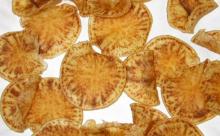Assessing the potential of the psyllid Trioza anthrisci to vector Liberibacter solanacearum (Lso) in Scotland

The unexpected finding of the presence of Lso and a potential vector species in Scotland raised significant concerns (Sjolund et al. 2017). However, without further information this cannot be put into context. The likelihood is that the disease and possible vector have been present in Scotland for a long time, and yet our crops remain symptomless. Therefore, without the introduction of another vector risk may remain low. In order to confirm this and establish the current risk of transmission to crops, the following information is urgently required: the distribution of potential pyllid vectors including T. anthrisci in regions of Scotland, the presence of Haplotype C Lso within these vectors, a genomic comparison of the Scottish Haplotype C Lso with disease-causing Haplotype C Lso from Finland and Spain, and establishment of T. anthrisci’s vector potential through the development of a breeding colony.
The knowledge required to identify different psyllid species is highly specialised but is essential in order to gain a wider understanding of the disease threat that such insects cause. As few in Scotland have this specialisation (including SASA), it is deemed important to up-skill others by running a training course on psyllid identification for entomologists within Scottish organisations to better enable Scotland to deal with possible Lso threats both now and in the future.
Impact:
This project will contribute to Scottish Government’s ability to control pests / diseases by increased knowledge on the presence and distribution of Liberibacter solonacearum and its host psyllids in Scotland and the potential of these organisms to cause and spread disease.
The knowledge required to identify different psyllid species is highly specialised but is essential in order to gain a wider understanding of the disease threat that such insects cause. As few in Scotland have this specialisation (including SASA), it is deemed important to up-skill others by running a training course on psyllid identification for entomologists within Scottish organisations to better enable Scotland to deal with possible Lso threats both now and in the future.
Impact:
This project will contribute to Scottish Government’s ability to control pests / diseases by increased knowledge on the presence and distribution of Liberibacter solonacearum and its host psyllids in Scotland and the potential of these organisms to cause and spread disease.
